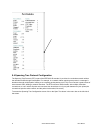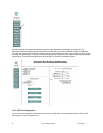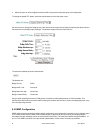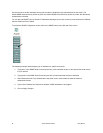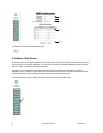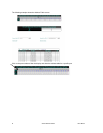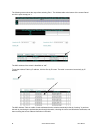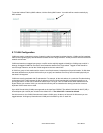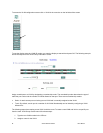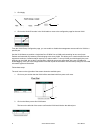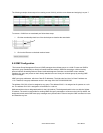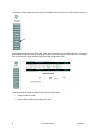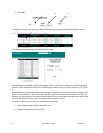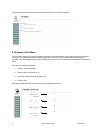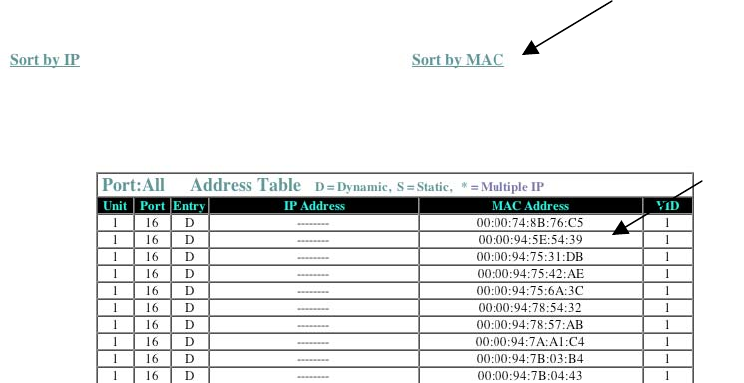
To sort the Address Table by MAC address, click the Sort by MAC button. Your table will be sorted numerically by
MAC address.
9.7 VLAN Configuration
VLANs are used to organize any group of network nodes into separate broadcast domains. VLANs confine broadcast
traffic to the originating group and eliminate broadcast storms in large networks. VLANs provide a secure and efficient
network environment.
VLANs are based on untagged port groups, or traffic can be explicitly tagged to identify the VLAN group to which it
belongs. Untagged VLANs can be used for small networks attached to a single switch. Tagged VLANs should be
used for larger networks, and all the VLANs assigned to the inter-switch links.
A VLAN is a group of end stations with a common set of requirements, independent of physical location. VLANs have
the same attributes as a physical LAN but allow you to group end stations even if they are not located physically on
the same LAN segment.
VLANs are usually associated with IP subnetworks. For example, all the end stations in a particular IP subnet belong
to the same VLAN. Traffic between VLANs is assigned. LAN port VLAN membership is assigned manually on an
port-by-port basis. VLANs can be defined as either Layer 2 or Layer 3 and a VLAN cannot switch between the two
layers. Before you create a VLAN, you must decide how they will be created and a naming convention to ensure
duplicate VLAN names are not used.
Up to 4094 Virtual LANs (VLANs) are supported on the IntraCore IC36240. The default VLAN with VLAN ID (VID) 1.
All switchports (eth1–eth24) are included in the default VID 1. The default VID 1 cannot be deleted.
Use this screen to view VLAN information and create a VLAN group. At the top of the main VLAN screen you can
toggle between VLAN group information and VLAN port information by click on each link.
89 Asante IntraCore IC36240 User’s Manual



